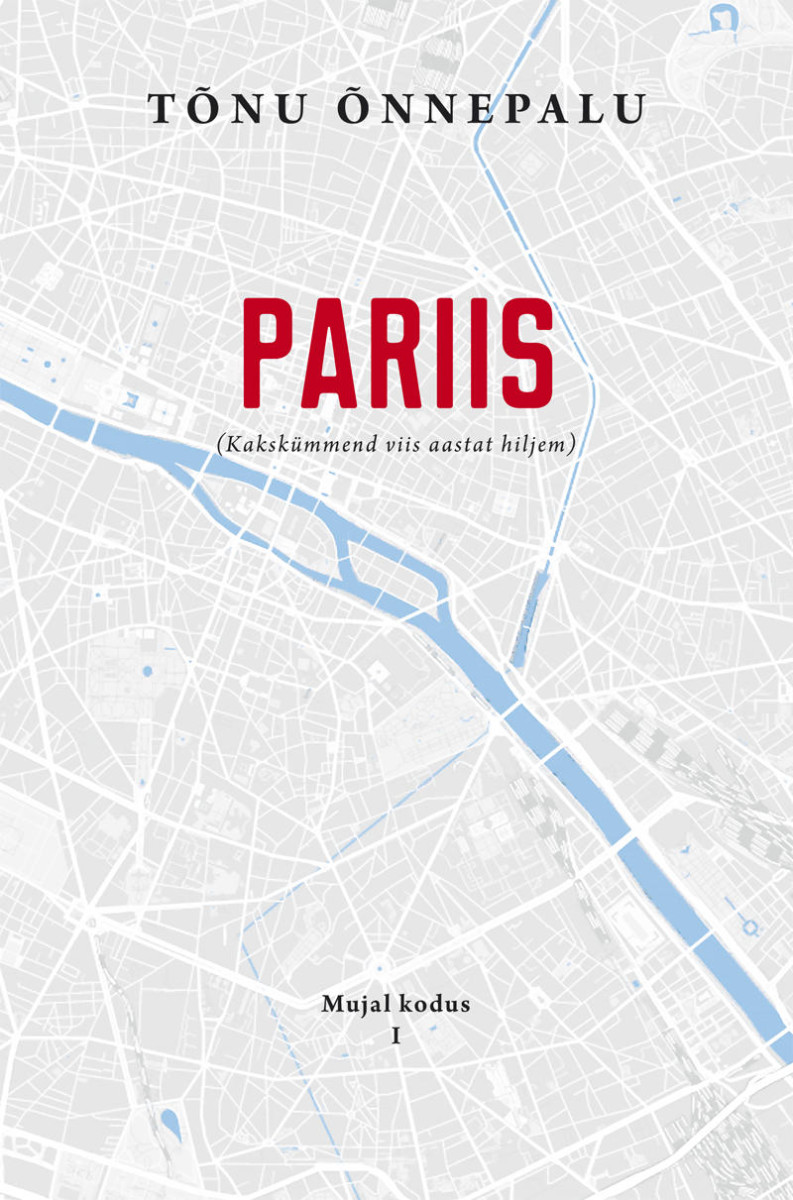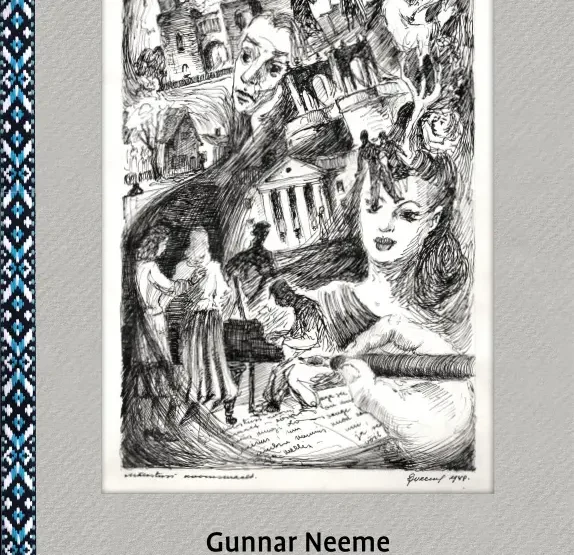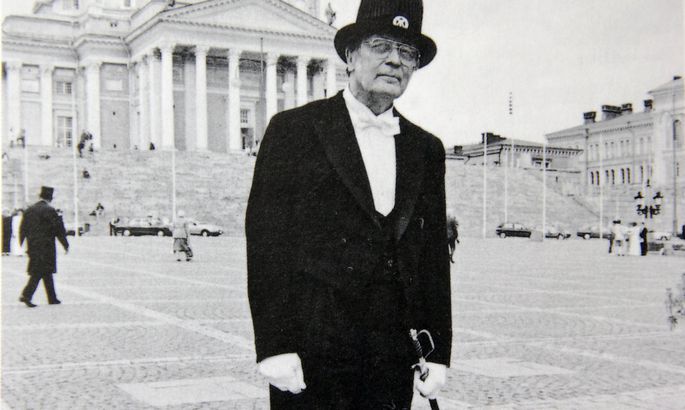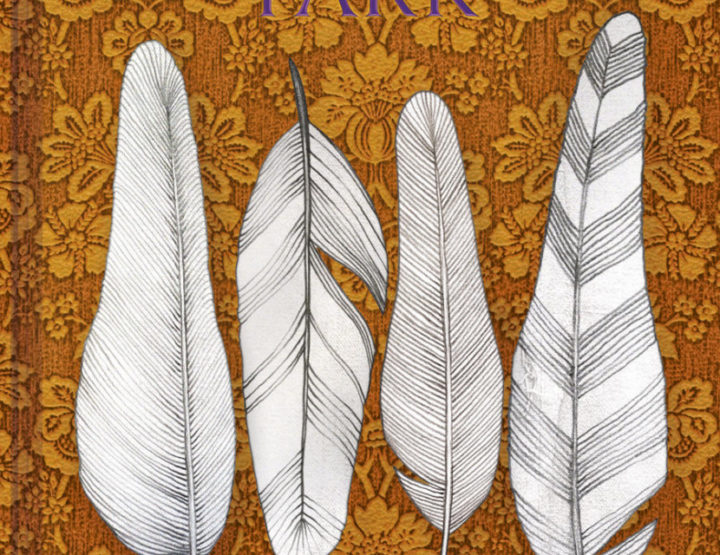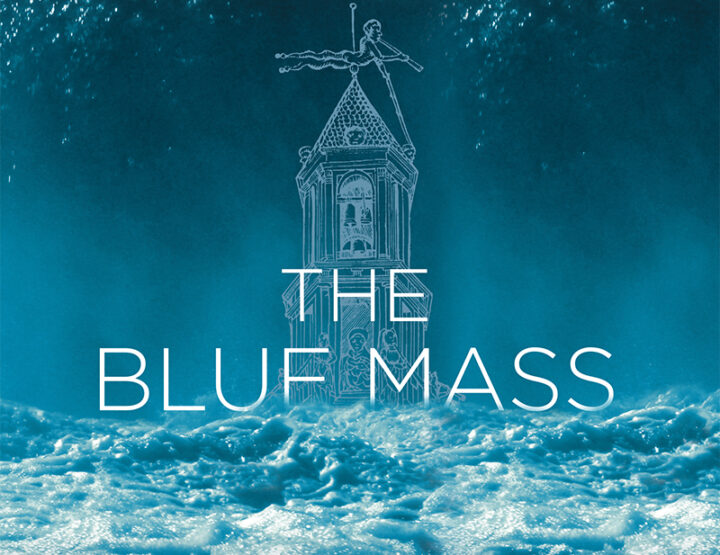Paris (Twenty-five years later)
EKSA 2019, 176 pp.
ISBN 9789949604876
Aaker (Muskoka, Ontario, CA)
EKSA 2019, 389 pp.
ISBN 9789949684007
(Paris: Twenty-Five Years Later; Acre: Muskoka, Ontario, CA)
EKSA 2019, 389 pp.
Tõnu Õnnepalu’s Paris: Twenty-Five Years Later and Acre: Muskoka, Ontario, CA are the first novels in a trilogy titled At Home Elsewhere – the third book, set on an island in the sea, is still to come. The release of a new Õnnepalu work is always an occasion in and of itself. For some reason, the feelings they stir up gravitate towards one extreme or another: love or disdain. Some writers simply do not leave their readers in the mediocrity of the mundane.
Paris is a diary-format novel in which the author returns to the city he lived in 25 years ago, writing a chapter every day as he cat-sits for a friend. Indeed, 25 years have passed since Õnnepalu’s timeless, defining work Border State! “To be honest, it’s only worth buying books published this year, this half-year, or ones that are at least twenty-five years old. For that was just about the time when the age of futility burst into full bloom – time began to sprint ahead, leaving everything behind and ideas to expire at an unprecedented rate.” Much has changed. Õnnepalu is no longer an Eastern European stranger – Paris has now become a home, albeit the kind he must flee again. It is a City with a capital C. And a City is independent of a nation or fatherland: “For every fatherland has committed numerous failures, which is to say the failures were committed in the name of the fatherland. […] In some sense, [cities] are indifferent to whomever they may currently belong to, because they belong to no one. […] Countrysides are all so jealous! The City is generous – or, well, easygoing. Better that than ill-tempered, wary, or snarling. Just like all those old fatherlands.” Yet as for Õnnepalu’s writing, merging with the City means the gaze is no longer as concentrated and sharp as the one readers found on the pages of Border State. The City is filled with disjointed memories, familiar places, impermanence, and recurring thoughts. “All I am able to write are mere margin notes, anyway, and more like margin notes upon margin notes in very tiny text that may as well be illegible.”
Paris lies upon a border. On the one hand, it is like an epilogue to Border State (while indeed too long to be an epilogue), but on the other, it is a prologue to Acre. It appears one must warm up to really begin writing.
Acre holds an entirely different Õnnepalu – one who, after spending late summer in Paris, travels on to an area of expatriate Estonians’ summer homes and scout camps in Canada. The diary-format novel continues, though it is more relaxed. Temporal border discussions are no longer as necessary. Whereas the City causes one to repeat themselves and stray outwardly, solitude in the Canadian forest leads to critique. Here, Õnnepalu tackles topics that have previously been somewhat taboo: the nature of Estonian expatriation, the mistreatment of native-born individuals when the Republic of Estonia was restored, and topics of Estonianness and homeland more generally. “Land, not language, unites people into a nation. […] A nation sprouts from the land and consolidates upon it. Estonians and Russian Estonians have, in fact, an easier time understanding each other than Estonians and expatriate Estonians do.” Comparing Americanism and Estonianism, he writes: “We do live in an American world.” All this is written amid nature – as always, Õnnepalu is unsurpassable in his descriptions of the environment, plants, and animals (for the entire summer after reading Acre, lindens seem somehow unusual and more intimate to me). Even in the City, Õnnepalu notices much that others likely overlook. Altogether, the brief notes scribbled in a Canadian “forest shanty” on scraps of local life and history, his Estonian ancestors’ memories, wandering through the woods (“Today, people here fear the forest that lies one hundred meters from their summer cottage”), Humboldt, and much more form a gripping whole – a scout’s guide of sorts.
Typical of Õnnepalu’s writing, both books contain a mournfulness (“I can’t really complain about my health. I have no illnesses. Not apart from inborn melancholy.”) and a certain anxiety about catastrophe; about a world that is no longer what it once was. “I do not know if Europe has a future,” Rémi Brague writes in his Eccentric Culture: A Theory of Western Civilization, which Õnnepalu has translated into Estonian. Every one of Õnnepalu’s books radiates this very uncertainty – an inevitable sorrow that is nevertheless not restricted or foolish. Yet, unlike many other Estonian authors who write on this topic, Õnnepalu is captivating. He possesses a natural greatness that can sometimes be tiring and repetitive in its sadness, but at its high points is entirely convincing, honest, and transfixing.
In summary, the trilogy should certainly be read through as a whole. As Leo Luks wrote in his review of Paris: “[This] is the first part of a trilogy of novels. Naturally, I can’t have any inkling of what will happen in the other works, but I have a strange sense as if I’ve already read them as well.” It appears this isn’t quite the case. There will certainly be reason to reread the trilogy 25 years from now, and the books themselves exceed expectations as a unified whole – a claim that can be made even before the final part has been published. Õnnepalu’s endless pilgrimage is a compelling one!

